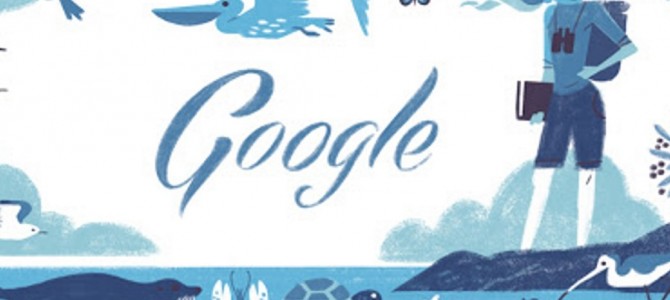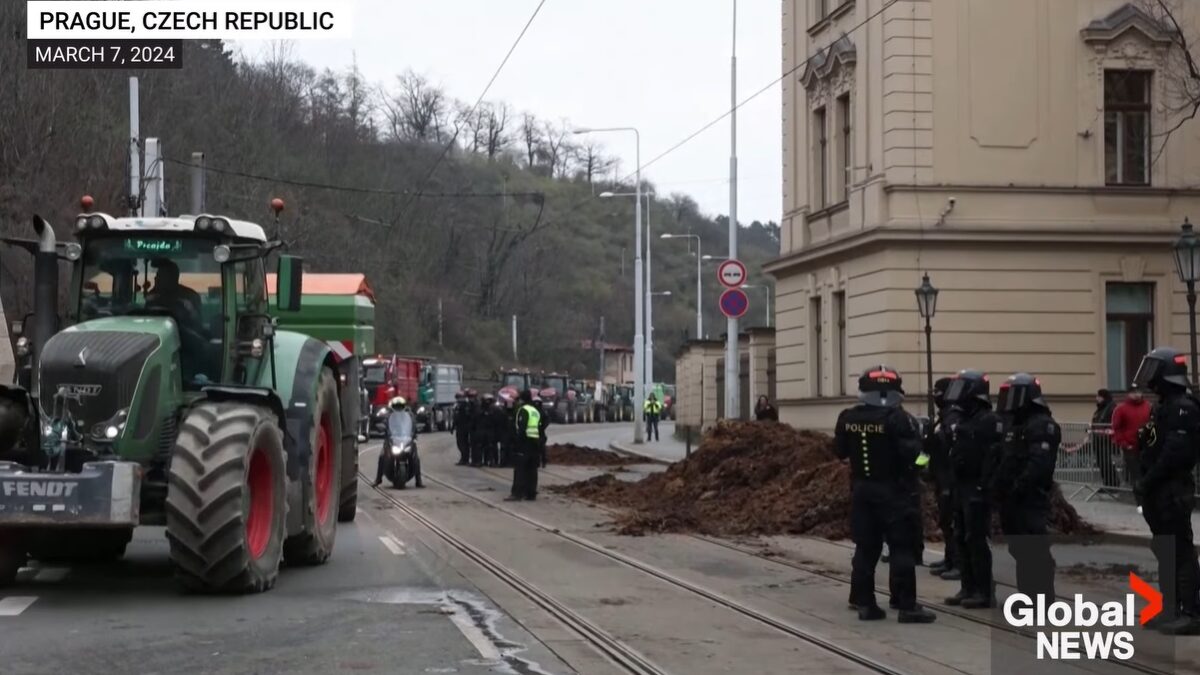
This week Google used their “doodle” of the day to honor the birthday of none other than Rachel Carson. When I first heard about this, I was certain that they had to have made some kind of mistake. Alas, no: Google was paying homage to an individual who has one of the highest body counts in human history. Her impact on humanity has been silent, ruthless, and wide reaching.
Rachel Carson penned Silent Spring in 1962. The book would become scripture for the modern environmentalist movement, leading to a ban on DDT, the most-effective pesticide for killing diseased mosquitoes. Using faulty science, Carson’s book argued that DDT could be deadly for birds and, thus, should be banned. Incredibly and tragically, her recommendations were taken at face value and soon the cheap and effective chemical was discontinued, not only in the United States but also abroad. Environmentalists were able to pressure USAID, foreign governments, and companies into using less effective means for their anti-malaria efforts. And so the world saw a rise in malaria deaths.
Gallingly, environmentalists even claimed that the effectiveness of DDT was leading to a world population explosion. Translation: preventable disease wasn’t killing enough poor children in developing countries. For anyone interested in reading on the topic further, the Heritage Foundation has a fantastic research paper on the DDT ban and the fallout on a macro-level. I’d like to share a story about the DDT ban and its impact from a more personal level.
I’ve lived in the Kingdom of Cambodia twice in my life. I spent a summer in the capital of Phnom Penh in college and an entire year in one of its largest “cities,” Siem Reap, four years ago. I suffer from Stockholm Syndrome when it comes to Cambodia. Some of my highest highs and lowest lows have taken place there. Rachel Carson is responsible for one of my lowest points, not only from my time in Cambodia, but in my life.
The summer I spent in Cambodia I often took trips into the countryside on weekends to get out of the city. Phnom Penh was slowly choking me and my very mild asthma to death. By Friday each week I couldn’t breath, and spending a few days recharging by the beach or in the country was just the prescription I needed to be physically and emotionally ready for the next week.
One weekend, about a month after I arrived, I spent the weekend in the countryside. It was a lovely, relaxing weekend and I was dreading the seven-hour bus ride back to Phnom Penh. When I got on the bus a little girl and her mother were already on board. I groaned, dreading spending my trip with an ill and potentially loud child. The girl had her hand attached to an IV, which I later learned was filled with coconut water. She had contracted dengue fever from a mosquito and was on her way to receive treatment. Dengue fever is quite common in Cambodia. It can also be quite deadly.
Over the next several hours I got bits and pieces of her story translated by a young man eager to practice his English with an American. She was a young mother by Western standards, but already had several children. When her daughter contracted dengue, she took her to a local clinic. The clinic was staffed by an incompetent, as most small village clinics are (I would end up encountering many over the course of my time there). She was given bag after bag of fluids but showed no sign of improvement. The decision to bring her to Phnom Penh was a big one. If she left work and brought her daughter, it would deplete the family’s savings, endangering the welfare of the rest of her children. The hospitals in Phnom Penh didn’t have the best track record among out-of-towners. By the time most folks became desperate enough to travel, it was too late. Hospitals, even in the capital city, are in horrifying condition and not properly equipped to help even when folks didn’t arrive on death’s door. Even private clinics that catered to Westerners weren’t up to our standards. I ended up in one of these clinics the next month with extreme dysentery. I was given a glass IV bottle with bubbles flowing down the tube. I count my blessings every day that I woke up alive in that clinic. These clinics require pre-payment, exorbitantly expensive by Cambodian standards.
Over the course of this seven-hour bus ride I watched as this girl wasted away. She was already lethargic when I came on board and, as the trip progressed, she just laid limp in her mother’s arms. At one point her IV became dislodged from her hand. The bus came to a stop and when I looked up from my book, all of the passengers were standing around my seat, yelling at me over my iPod in Khmer. My young translator told me the mother had requested I reattach the IV into her daughter’s vein. I was a 20-year-old history major at Rutgers spending my summer teaching conversational English. The mother assumed that I was medically trained, as every white person she had ever met was. It took some time to convince the bus that I wasn’t a doctor or a nurse. An old man with dirty hands started poking the child’s hand over and over with the needle, trying to get it back in. She laid limp while he did so. I suggested they hold her wrist so a vein could pop up more easily. The bus erupted in anger: I was a doctor! They assumed I had been holding out for money. Her mother tried to push 100 riel notes into my hand, equivalent to several cents in American currency, begging me to help her daughter. I again spent several minutes trying to convince her and the rest of the bus that I wasn’t a medical professional. This time, nobody really believed me, but after a while they at least gave up asking me to put a needle in the girl’s hand. When the bus arrived in Phnom Penh, the driver made the unprecedented move of stopping first at the hospital to drop the girl off before we went to the bus station. She picked the limp girl up in her arms and wordlessly disembarked. It was all fairly anticlimactic considering the ride we had all just had together. Maybe I’m just a sensitive Westerner. These situations are sadly all too common in the “Kingdom of Wonder.”
When I returned to Cambodia, I did so to be a teacher at an incredible school funded by an uber-wealthy American family outside the tourist city of Siem Reap. It takes the best and the brightest in the area and gives them an American education. Students are taught English and then learn an American curriculum. Without boasting, I would venture the guess that it’s the best school in the country. The ultimate goal is to send students to the United States, England, and Australia for university. When I was there the school was only two years old and it was unclear if that objective would ever be reached. Four years after I left, the first student is making her way to a small liberal arts school in North Carolina next year. Four of my students, now in grade nine, are spending their summers learning abroad: two in Australia, and two in Cambridge.
The school prides itself on taking care of its students. When I first arrived one of the things I was told was about spraying. I was assured that the area around the school (the building was literally in a rice paddy) was sprayed frequently for mosquitoes. Students and staff reported a zero-percent bite rate. Many other NGOs in the country were horrified by much of what we did: picking only talented students, feeding them three meals a day (yes, there were actually “humanitarians” who objected to us feeding our students), and spraying. Over the course of my year teaching not a single student came down with dengue fever or malaria. The summer after I left one of my weakest students had a very serious brush with the former. The administration decided to make school breaks as short as possible for this reason. When kids were home, away from the sprayed area, they got sick. They joined the line of dozens or hundreds of families waiting outside of Kantha Bopha, waiting for free treatment from the non-profit hospital in the tropical heat.
Those who decry life-saving anti-mosquito chemicals like DDT are the kinds of progressives who call conservatives anti-science and heartless. They do so while withholding environmentally safe chemicals from saving the lives of children in the developing world. Rachel Carson and her present-day admirers throw nets at those at risk of malaria and other mosquito-borne illnesses. There are charities that give them out like candy.
Next year, when Google’s doodle team thinks about what or who to honor, I invite them to spend a few nights under a suffocating net in tropical and scenic Cambodia. Experience the true legacy of Rachel Carson. After throwing off the net at 2 a.m. in order to breathe, I invite them to spend days or weeks ravaged by fever in Kantha Bopha Hospital in a non-air conditioned room with 60 other families. One hot room for 60 beds, full of feverish children. Think of it as a commune! When you have to barter with other families for food and water for both the patient and families, consider it a family bonding experience. When you have to choose between traveling to get one kid treated instead of feeding your other kids, think of it as a good old-fashioned game of Russian roulette. Without living the results of a DDT-free world every single day, such activists are truly dangerous fanatics masquerading as liberal-minded idealists. And Google, apparently, is all too eager to perpetuate this deadly deception.









